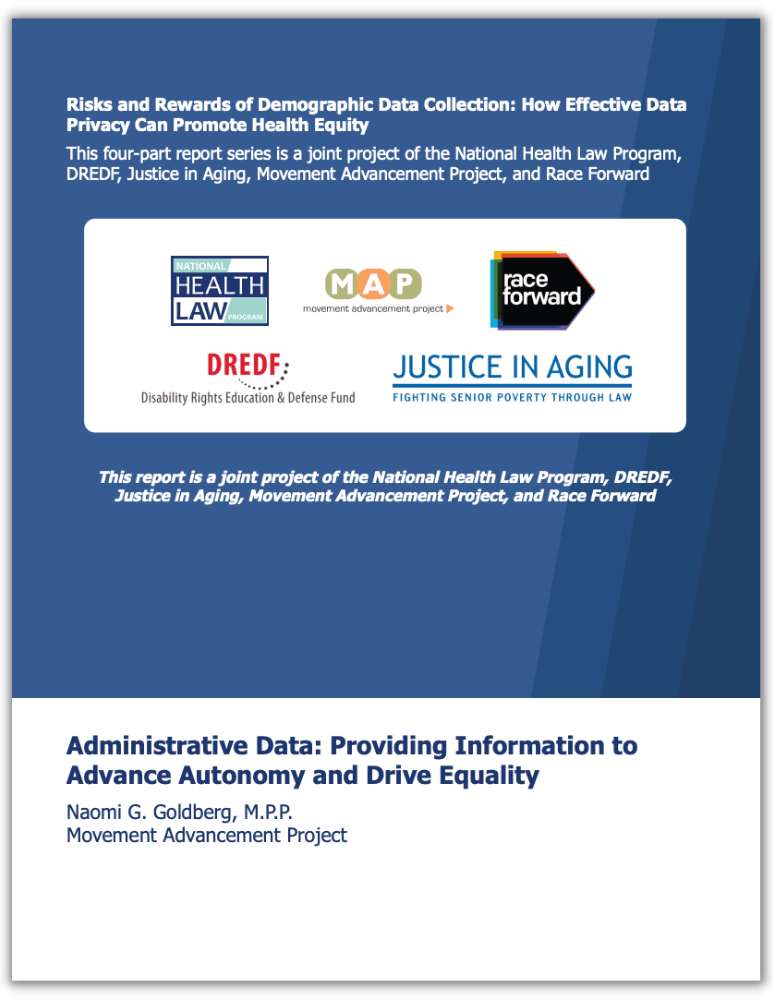Talking about data can seem complicated or wonky, but inclusion and equity in demographic data is vital to our everyday lives. This is particularly true when it comes to health care for LGBTQ people, people of color, people with disabilities, and anyone from marginalized communities. It is also critical that data privacy is central to discussions about how data can improve health equity.
MAP is proud to be a part of a new collaborative series entitled
“Risks and Rewards of Demographic Data Collection: How Effective Data Privacy Can Promote Health Equity” led by the
National Health Law Program in partnership with
MAP,
Disability Rights Education & Defense Fund,
Justice in Aging, and
Race Forward. MAP’s brief is the first in the series and focuses on how administrative data that are inclusive of LGBTQ people, race, disability, and others can advance autonomy and drive healthcare equity.
"Risks and Rewards of Demographic Data Collection" Series Summary Read more
The
MAP brief in this series highlights some of the important opportunities for administrative data in the health care context for individuals, for health care systems, and for broader society, while also demonstrating that it is critical that administrative data collection systems are examined to ensure they are as inclusive as possible.
We know that data drives policy decisions. To make informed and responsible policy decisions, we need consistent and inclusive data that accurately represent the experiences of people from various marginalized communities. For example, there remains a lack of consistent, coordinated collection of data about sexual orientation and gender identity across state and federal agencies.
When LGBTQ people and other people with marginalized identities are not seen and counted, the challenges we experience are too often rendered invisible and policy decisions don’t reflect our needs.Better and more equitable data collection helps:
Ensure compassionate and appropriate health care for individuals.
When patients know that they can safely disclose demographic information, they are more likely to feel comfortable discussing health and risk behaviors, all of which can drive better health care.
Shape institutional programs and services.
When institutions have inclusive data fields, they can utilize this information to identify population differences, such as differences in safety, quality, or outcomes in a particular hospital or healthcare system.
Improve understanding of disparities and address those with policy improvements.
Administrative data can be aggregated across geographies and systems to understand population-level experiences. This can help identify gaps in treatments for diagnoses by demographic characteristics, or otherwise examine the relationship between diagnosis, treatment, and outcomes based on demographic information.
Recommended citation format:
Movement Advancement Project. February 2023.
Administrative Data: Providing Information to Advance Autonomy and Drive Equity.
https://www.mapresearch.org/administrative-data-report.


